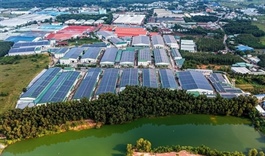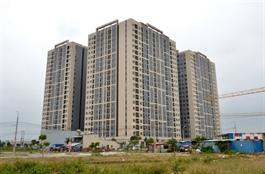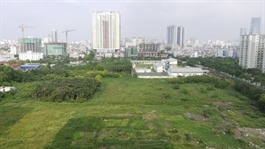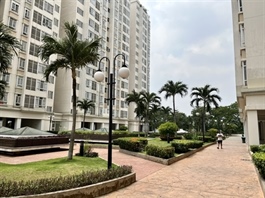More affordable housing needed to help market recover
More affordable housing needed to help market recover
Despite the Government’s concerted efforts to address the challenges of the property market, the market won’t improve until the end of 2024 due to a lack of affordable housing, experts have warned.
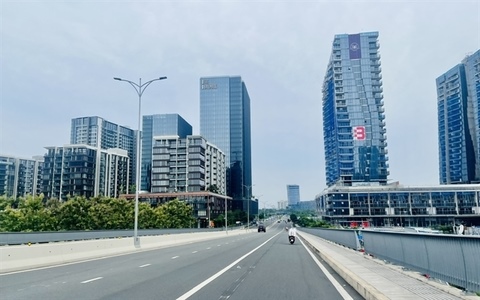
High-end apartment projects in the Thủ Thiêm urban area of Thủ Đức City, with prices reaching up to US$10,000 per square metre. Experts recommended boosting the availability of affordable housing to facilitate market recovery. — VNS Photo Bồ Xuân Hiệp |
Experts have warned the market will continue to struggle with limited access to capital, legal bottlenecks and the inability of companies to redeem bonds.
In the most optimistic scenario, the market will face at least two more challenging quarters before entering a recovery phase in the second half of 2024.
Different property segments will require different amounts of time to regain liquidity and reach their full potential, according to the experts.
A report by the Vietnam Association of Real Estate Brokers showed that liquidity in the property market has been gradually improving, with 6,000 transactions recorded in the third quarter, a surge from previous quarters.
Võ Hồng Thắng, director of the DKRA Group Market, said more than 4,800 newly sold properties, accounting for 70 per cent of supply, were recorded in the southern region in the third quarter.
Thắng, however, pointed out that a strong recovery was not expected in the near future. The earliest recovery would occur in the second half of 2024.
Initially, properties that meet demand, such as social housing, mid-range and high-end apartments, and land in major economic areas, would experience the first signs of recovery.
Other market segments, such as speculative properties, would take much longer to regain liquidity.
Dương Thùy Dung, senior director of CBRE Vietnam, said the mid-range and affordable apartment segment would observe the first upward movement in the third quarter of 2024.
Other property types, such as land plots, villas, and townhouses, might require until the end of 2024 or early 2025 to recover, she added.
Lê Đình Chung, CEO of SGO Homes, recommended that the Government continue to issue mechanisms and policies to improve supply and purchasing power.
Currently, supply remains stagnant with only about 10 per cent of projects being approved. Though loan interest rates have decreased, they are still relatively high.
A recent survey conducted by Batdongsan website indicated that between 40-42 per cent of real estate brokers believed that the recovery of the land plots and low-rise housing segments would occur in the second half of 2024.
The outlook for apartments is more positive, with 42 per cent expecting improvement in the first two quarters of 2024 and 30 per cent predicting recovery in the last two quarters of the year, according to the survey.
Nguyễn Quốc Anh, deputy general director of Batdongsan, said each segment would have a different recovery time, but the slowest would be in the fourth quarter of 2024 when government policies fully permeate the market.
Dr. Sử Ngọc Khương, senior director of Savills Vietnam, said the recovery of the market largely depended on macroeconomic policies and the general economic situation.
It’s positive that fiscal and monetary policies were being well managed and the government had constantly issued solutions to address the hurdles faced by real estate firms, he said.
The Land Law of 2023, if implemented on schedule, would be effective in the second half of next year, which would help to address bottlenecks in project approvals in new residential areas and restore housing supply in the 2024-2025 period, he noted.
Experts said the recovery of the real estate market would not follow a V-shaped pattern but rather a U-shaped pattern.
They predicted the sector would not grow strongly until at least 2025.
To help the market recover and develop sustainably, they recommended increasing the supply of affordable housing.
It was vital to issue specific regulations to speed up the implementation of the VNĐ120 trillion support package for financing social and worker housing projects, experts noted.




